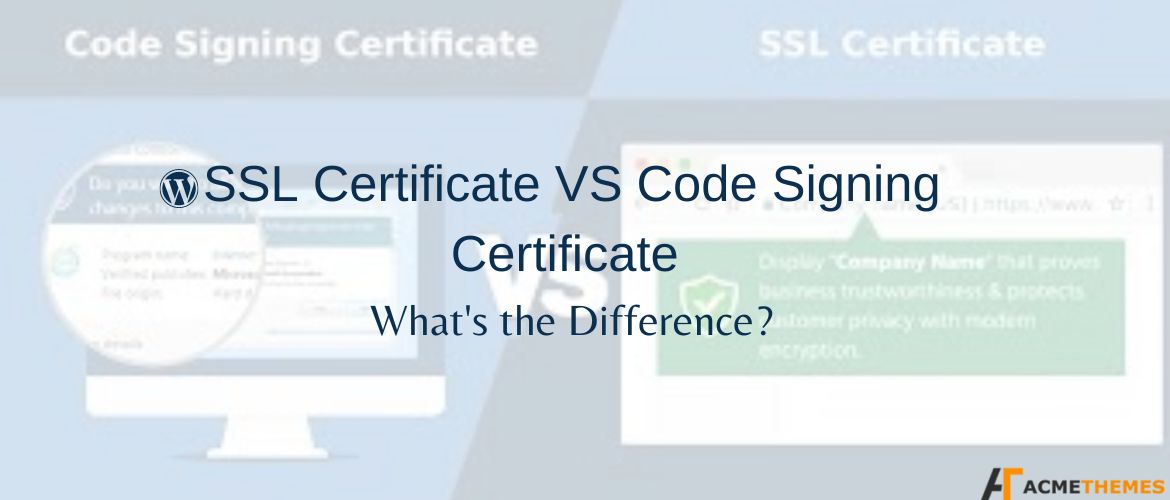SSL Certificate VS Code Signing Certificate: What’s The Difference?
Table of Contents
What is an SSL certificate?

You must have seen the address bar padlock when visiting reputed sites. It has proper encryption mechanisms in place to ensure encrypted communication between the visitor’s browser and the web server. In fact, it will prevent any unauthorized third party to have access to this exchange.
The data exchanged between the two entities is encrypted. The intended receiver of the information only decrypts it. There are various levels of validation based on the type of website. For example, for the Extended Validation certificate, the Certificate Authority (CA) undertakes a thorough vetting process by validating the registration details and the physical address, and the contact number.
Understanding the Workings of an SSL certificate
SSL Certificate work on public-key cryptography technology. When a user wishes to connect to a website, the browser will ask the server for its identity. The server sends out a copy of the certificate. Similarly, the browser checks and sends a message accordingly to the server. An automatically signed acknowledgment is sent back by the web server.
An encrypted SSL session can be started now. Encrypted data sharing is carried out between the browser and the web server.
What is Code Signing Certificate?

There have been several instances where users have downloaded malware without being aware of it. Such instances have occurred while downloading software over the internet. We hope there was a mechanism to prompt the user before the application is downloaded.
Whenever you try to download software, a pop-up shows the application’s developer and enquires whether you would wish to download the software. It is where the code signing certificate comes into play. In fact, a code signing certificate ensures the software’s integrity, with the developer able to digitally sign the software.
Once the developer uses a digital signature to sign the code, the software cannot be tampered with by any third party. Similarly, the developer’s name is displayed. It engenders a sense of trust in the minds of the user. Also, the user can know that no third party was granted unauthorized access to the software.
Differences between SSL Certificate and Code Signing Certificate:
In terms of date:
There is a major difference between SSL and code signing certificates when the topic comes to the expiration date.
If there is an expired certificate on your website then it will trigger petrifying warnings to your users/visitors.
If there is a software executable that is signed with a code signing certificate that is disabled now, then no error will be displayed considering the code signing certificate is valid when the code is signed and timestamped.
In terms of reciprocity:
Can Code signing Certificate and SSL Certificate be used mutually?
The answer would be no.
Both SSL and Code signing certificates are authenticated individually and both of them have non-identical enhanced key usages that are listed in the certificate.
If one tries to use one of those alternatively with the other, there will emerge issues.
Major Differences Between Code Signing Certificates and SSL Certificates
Here are the basic differences between code signing certificates and SSL certificates:
- Code signing certificate is used for administrating an automated signature to code and software that enables to avoidance of security warnings during installment.
- SSL Certificates are used for sites that enable HTTP URLs.
- Code signing certificate encrypts the timestamp and signature as a part of the signature block. Here, the integrity test is done through hashing.
- SSL certificate encrypts all the major transmission between servers and clients.
Therefore, this is to be understood that Code Signing Certificate defends software, and an SSL certificate encrypts the website.
Hope you enjoyed reading this article!!
Here is our recent article:
